| | | | | | | Presented By Babbel | | | | Axios World | | By Dave Lawler · Dec 15, 2022 | | Welcome back to Axios World. - We're starting tonight (1,978 words, 7½ minutes) with a look at the biggest crises looming in 2023, and ending on a much lighter note with the history of the poinsettia.
- We'll be back on Monday. In the meantime, enjoy Messi vs. Mbappé on Sunday.
| | | | | | 1 big thing: The world's worst crises |  | | | A camp for displaced people in Baidoa, Somalia. Photo: Scott Peterson/Getty Images | | | | The International Rescue Committee's watchlist of the countries most at risk of worsening humanitarian crises in 2023 is a grim reminder of how many global emergencies are raging below the international radar. Zoom in: Ukraine sits at #10 on the annual watchlist, which is compiled through a combination of quantitative data and on-the-ground assessments. That relatively low ranking is a testament to the severity of other urgent crises, including in Somalia (#1), Ethiopia (#2) and Afghanistan (#3), as well as to the fact that robust humanitarian support is arriving there from around the world. - In a conversation with Axios this morning, IRC CEO David Miliband agreed that the focus on Ukraine has "crowded out political bandwidth" for other issues.
- Still, the former U.K. foreign secretary said he hopes the Western response — billions in aid paired with support for refugees — will be replicated in other crises.
- For now, countries in Europe including his own have instead cited their efforts in Ukraine as an excuse not to step up on other issues, he said.
Number one on this year's list is Somalia, where six years of devastating drought have pushed half the population into crisis levels of food insecurity, and hundreds of thousands of people to the brink of starvation. - Part of the reason for the lack of international attention and aid for Somalia is that "it's been put in the 'too difficult' box," Miliband said.
- Governments and other international actors believe, incorrectly in his view, that even if they did dedicate significant funding and attention, it wouldn't solve anything. The IRC has warned that international actors mustn't wait until famine is declared to act.
Somalia is one of many countries on the watchlist, including the Democratic Republic of Congo (#4) and Burkina Faso (#8), where long-running armed conflicts have stifled development and made it harder to distribute humanitarian aid. - Conflict drives 80% of humanitarian need, according to the report, which is part of the reason that so much of that need is concentrated in relatively few countries.
- According to the IRC report, armed conflicts now last nine years on average, up from around four in 1970 and seven in 2000.
- In Miliband's view, that's because of the proliferation of civil wars, which are more difficult to resolve than conflicts between states, and because more outside actors have involved themselves in such conflicts, such as in Yemen (#5) or Syria (#6).
The IRC report highlights a paradox: Even as extreme poverty has been falling year after year (albeit with some setbacks during the pandemic), the number of people in dire humanitarian need has been rapidly increasing. - Asked why the rising tide wasn't lifting all boats, Miliband said there were really two different bodies of water.
- "The theory of international development was really developed for stable states. It's ineffective in unstable states," he said.
This year's watchlist… - Top 10: 1. Somalia; 2. Ethiopia; 3. Afghanistan; 4. DRC; 5. Yemen; 6. Syria; 7. South Sudan; 8. Burkina Faso; 9. Haiti; 10. Ukraine.
- Unranked: Central African Republic; Chad; Lebanon; Mali; Myanmar; Niger; Nigeria; Pakistan; Sudan; Venezuela.
|     | | | | | | 2. Erdoğan rival faces prison for "fools" remark | 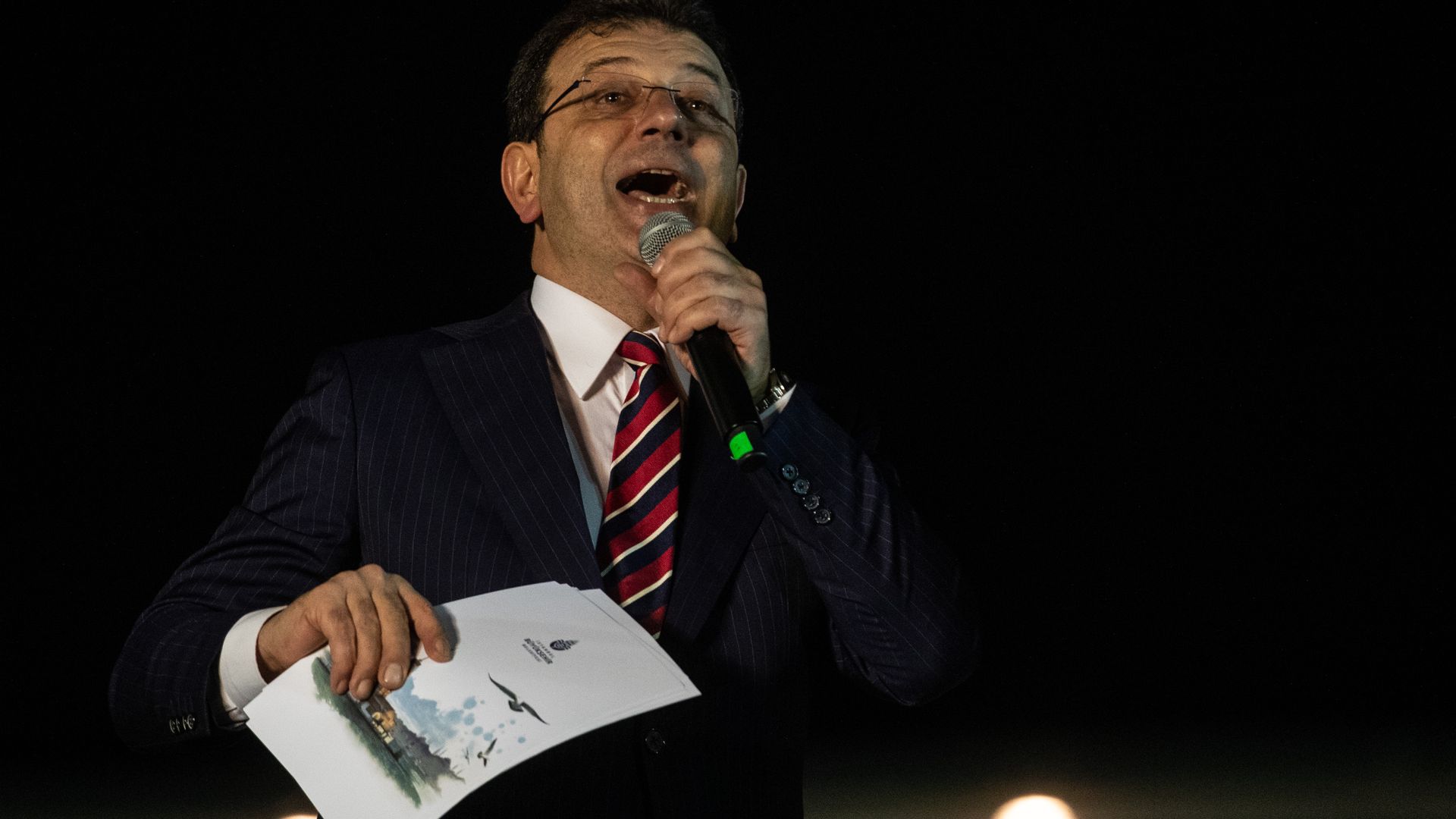 | | | Ekrem İmamoğlu addresses supporters in Istanbul after the ruling. Photo: Burak Kara/Getty Images | | | | A Turkish court sentenced Istanbul Mayor Ekrem İmamoğlu to 2.5 years in prison and banned him from politics for calling the electoral officials who annulled his original election victory in 2019 "fools." The backstory: İmamoğlu made the comment after twice defeating a candidate from President Recep Tayyip Erdoğan's AKP party, which forced a new election in Turkey's largest city after losing the initial vote. That instantly made him a strong contender to lead the opposition into the presidential election in June. - Erdoğan's critics allege he's trying to use the courts to nip a potential challenge in the bud. Polls show a tight race between Erdoğan and an opposition alliance, which has yet to nominate its candidate.
- İmamoğlu is still free and in office pending an appeal, which could drag on for months. It's unclear how the ruling will affect his chances of becoming the opposition standard-bearer.
- Thousands of protesters gathered in Istanbul today. İmamoğlu called the ruling a "disgrace" and told supporters, "We will change this order in the election next year."
- Flashback: Erdoğan was himself forced to give up his position as Istanbul's mayor, jailed, and barred from holding office in 1998 for alleged "incitement to violence." He rose to national power five years later.
The big picture: Erdoğan's popularity has slumped amid a severe economic downturn, which many economists argue has been exacerbated by his unorthodox economic policies. What to watch: Erdoğan could use an incursion across the border into Syria to change the topic to security issues and rally his nationalist base, Erin O'Brien writes in Foreign Policy. |     | | | | | | 3. Global news roundup | 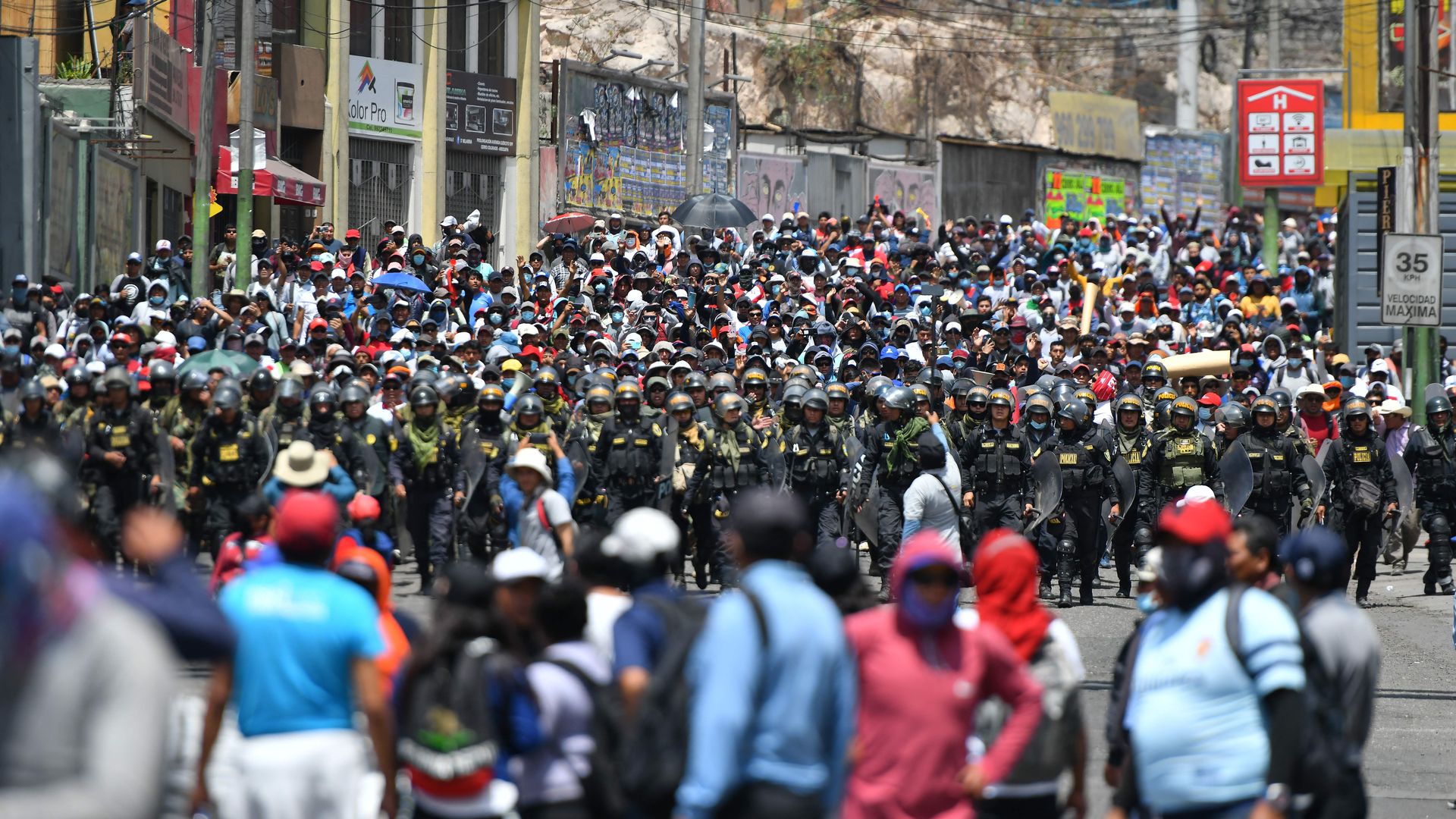 | | | Police and protesters in Arequipa, Peru. Photo: Diego Ramos/AFP via Getty | | | | 1. As electoral returns initially came in from Fiji yesterday, they showed the opposition People's Alliance comfortably ahead of Prime Minister Frank Bainimarama's FijiFirst party. But the results went offline for a few hours, and then reappeared with the ruling party way out ahead. - State of play: Electoral authorities say there was a glitch in the system which has been fixed. Opposition leader Sitiveni Rabuka is crying foul. International monitors have taken no position as yet.
- Both Bainimarama and Rabuka, who is a former prime minister, have instigated coups in the past. The U.S. and Australia have been reluctant to criticize Bainimarama's more authoritarian moves for fear of pushing the biggest of the South Pacific island states toward China, the Guardian notes.
2. Azerbaijani activists have since Monday been blocking the lone road connecting Armenia with the disputed Nagorno-Karabakh region, which Azerbaijan also claims. - Driving the news: Armenia has accused Azerbaijan's government of intentionally cutting off the roughly 120,000 ethnic Armenians in the region. Azerbaijan says the demonstrations were spontaneous.
3. Peru's defense minister announced a 30-day state of emergency in response to deadly protests sparked by the ousting of former President Pedro Castillo. 4. At least 141 people were killed in Kinshasa when the worst flooding and landslides in years hit the DRC's capital this week. 5. With the Biden administration reportedly planning to send the Patriot air defense system to Ukraine, Russia today warned of "consequences." |     | | | | | | A message from Babbel | | The easy way to connect with anyone from (almost) anywhere | | |  | | | | With Babbel in your back pocket, language barriers won't keep you from meeting new people. What you need to know: Across 10-minute expert-curated language lessons, you could learn to have real-world conversations in 1 of 14 languages in just three weeks. Get up to 55% off your subscription. | | | | | | Bonus: Where in the world? | 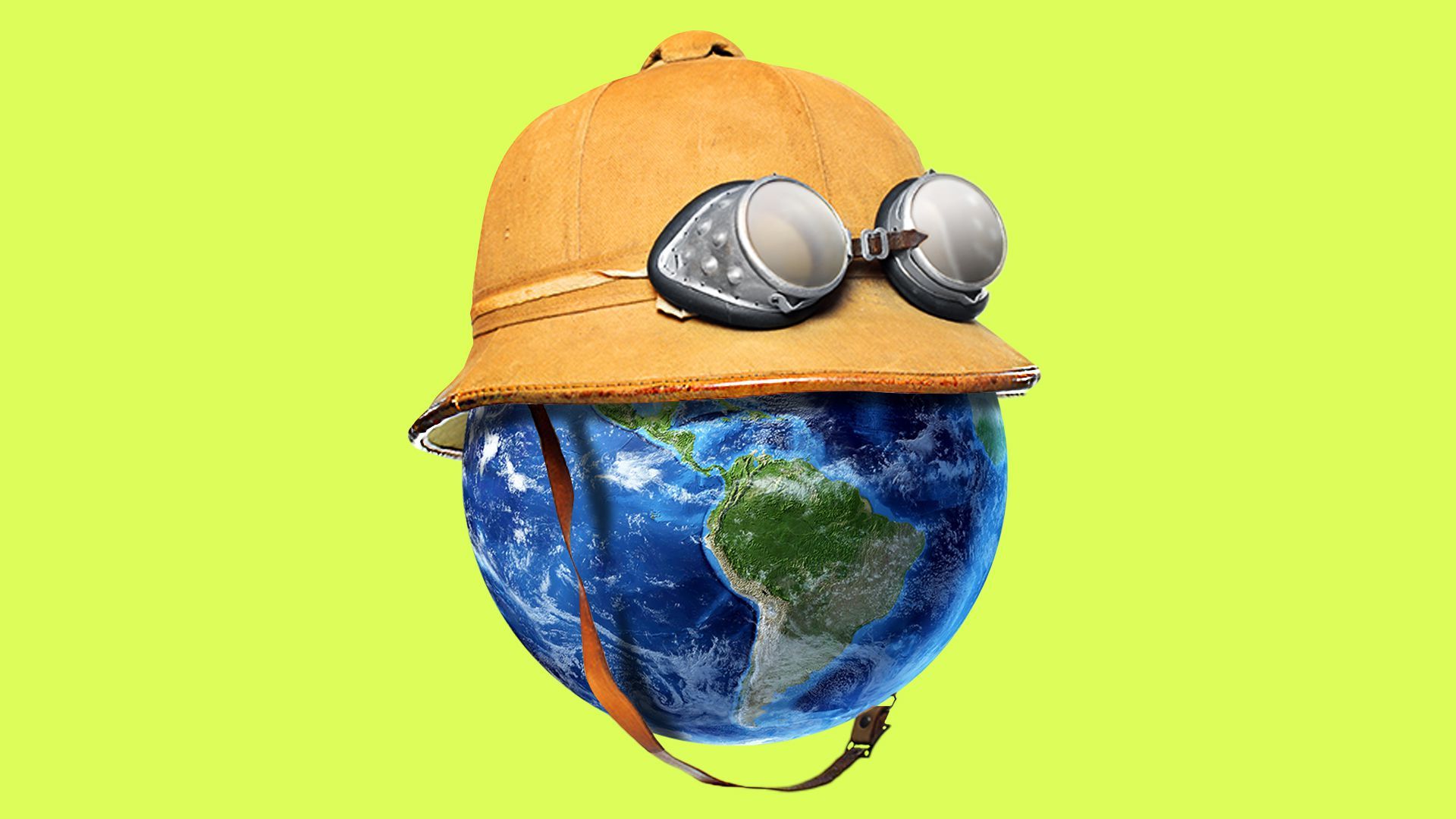 | | | Illustration: Natalie Peeples/Axios | | | | Can you remember where all of these global events happened in 2022? - Jan.: The Moscow-led CSTO sends in troops to restore order in ___.
- Feb.: The Winter Olympics are held in ___.
- March: Yoon Suk-yeol is elected president of __ by less than 1% of the vote.
- April: A truce is agreed to halt the civil war in ____.
- May: Protesters in ____ occupy the presidential palace (and swimming pool) during mass protests. The president resigns.
- June: An earthquake near the border of ___ and ___ kills more than 1,100 people.
- July: The former longest-serving prime minister of ____ is assassinated in a rare instance of gun violence.
- Aug.: China conducts its largest-ever naval exercises around ___ after accusing the U.S. of provocations .
- Sept.: The West African country of ____ has its second coup in one year.
- Oct.: More than 150 people are killed in a crush outside a Halloween party in the city of ____.
- Nov.: Ukrainian forces recapture ____, the only regional capital that has fallen to Russia since the invasion.
- Dec.: Scientists in ____ claim a major breakthrough in nuclear fusion.
Scroll to the bottom for answers. |     | | | | | | 4. Interview: Sierra Leone's big bet on education |  | | | Attending school in Freetown. Photo: Saidu Bah/AFP via Getty Images | | | | Since taking power in 2018, President Julius Maada Bio has doubled the proportion of Sierra Leone's budget dedicated to education to 22% — one of the highest rates in the world — and attempted to radically reform schooling in what remains one of the world's poorest countries, with one of the highest rates of adult illiteracy. The man tasked with carrying out that agenda is David Moinina Sengeh, who serves as both education minister and chief innovation officer. In an interview with Axios while in Washington for the U.S.-Africa summit, Sengeh tells Axios that much of the extra funding (which has been supplemented by NGOs and the World Bank) has gone toward eliminating tuition fees and recruiting and paying teachers. - "We have such a huge [education] deficit that we don't have a choice," he says. "It's expensive but the alternative is worse."
- The government has banned corporal punishment, reversed a ban on pregnant girls attending school, and conducted outreach in rural areas to get more kids into classrooms.
- Sengeh says school attendance is up 30%, though that has exacerbated the problem of overcrowded schools, some of which operate in morning and afternoon shifts. "Our principle is that it's better for children to be in classrooms than under a bridge or on the streets somewhere," he says.
Sierra Leone won international praise during the pandemic for managing to continue education, including by using radios. - Sengeh notes that the country had previous experiences with remote learning because schools closed due to Ebola and during the decade-long civil war that ended in 2002.
- While some countries struggled to get kids back in the classroom, enrollment in Sierra Leone was up significantly once schools reopened, he says.
Sengeh, 35, took an unusual path to government. After earning a degree from Harvard and a PhD from MIT, he was working at IBM in Nairobi when Bio recruited him. - "My parents thought I should stay in the private sector — better resources, nobody's abusing you for the work that you're doing," he says with a laugh.
- There were plenty of skeptics in and around the government as well. "I was the youngest member of cabinet, people thought I was too inexperienced, too technical to do well in politics [or] to handle teachers unions. People have been wrong before and they'll continue to be wrong," he says.
|     | | | | | | 5. Russia presses UN chief not to probe Iran drones | 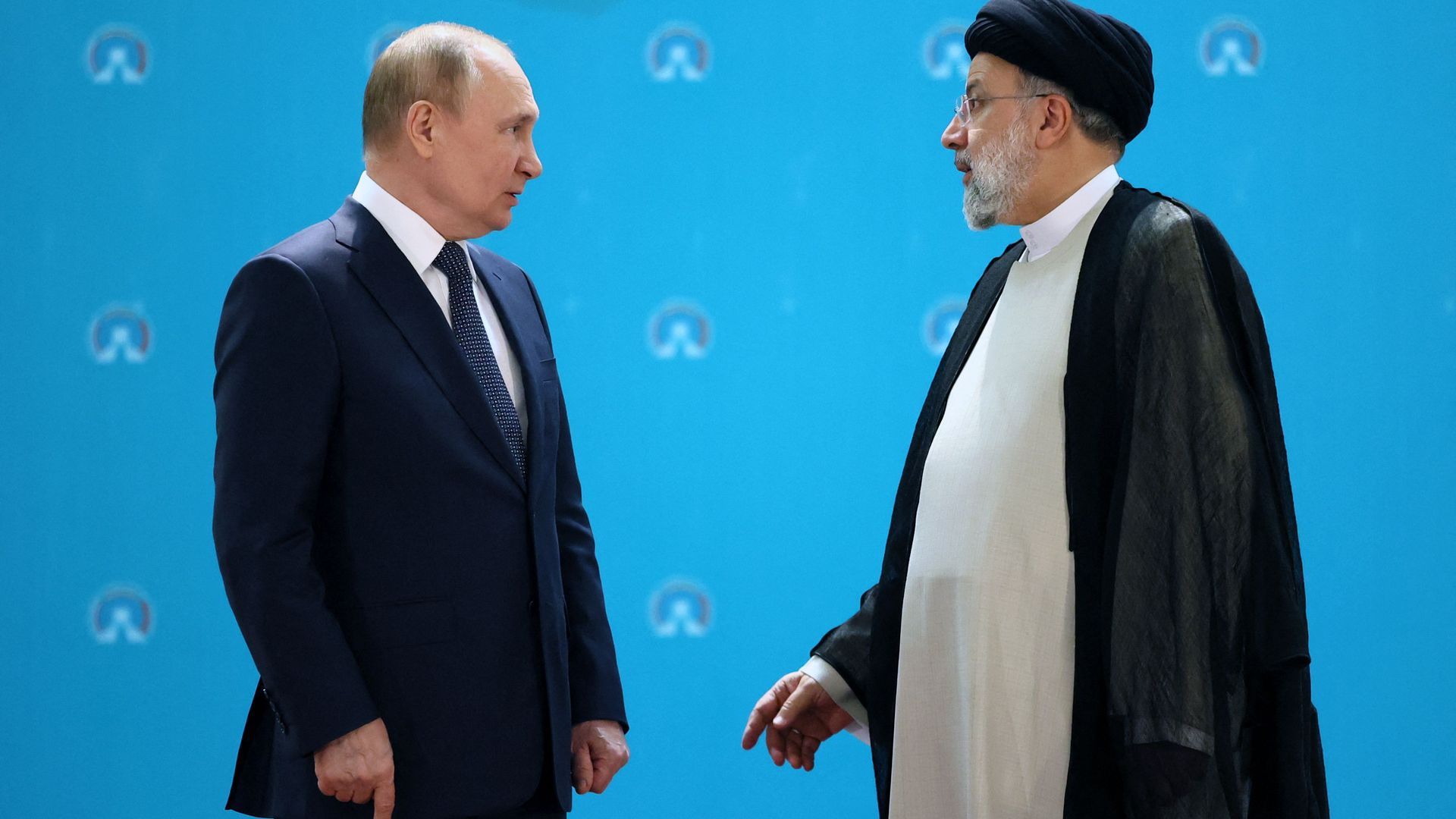 | | | Russian President Vladimir Putin speaks to Iranian President Ebrahim Raisi in Tehran on July 19. Photo: Sergei Savostyanov/Sputnik/AFP via Getty Images | | | | An upcoming report to the UN Security Council about Iran's compliance with the 2015 nuclear deal does not accuse Tehran of supplying Russia with drones for the war in Ukraine, despite pressure from the U.S. and its allies to do so, my colleague Barak Ravid scoops. Behind the scenes: Russia has pushed back hard, and so far successfully, on Western efforts to convince UN Secretary-General António Guterres to order an investigation into Iran's alleged supply of drones, which the U.S. argues is a violation of the Iran deal (Russia disputes that). - Western diplomats say Russia has put immense pressure on Guterres and his advisers not to order an investigation, and has even threatened to withdraw its cooperation on other issues relating to Ukraine, most notably the grain corridor.
- A Western official told Axios that Guterres must order the investigation now and "not give in to pressure from Russia."
Go deeper. |     | | | | | | 1 holiday thing: The poinsettia's forgotten history | 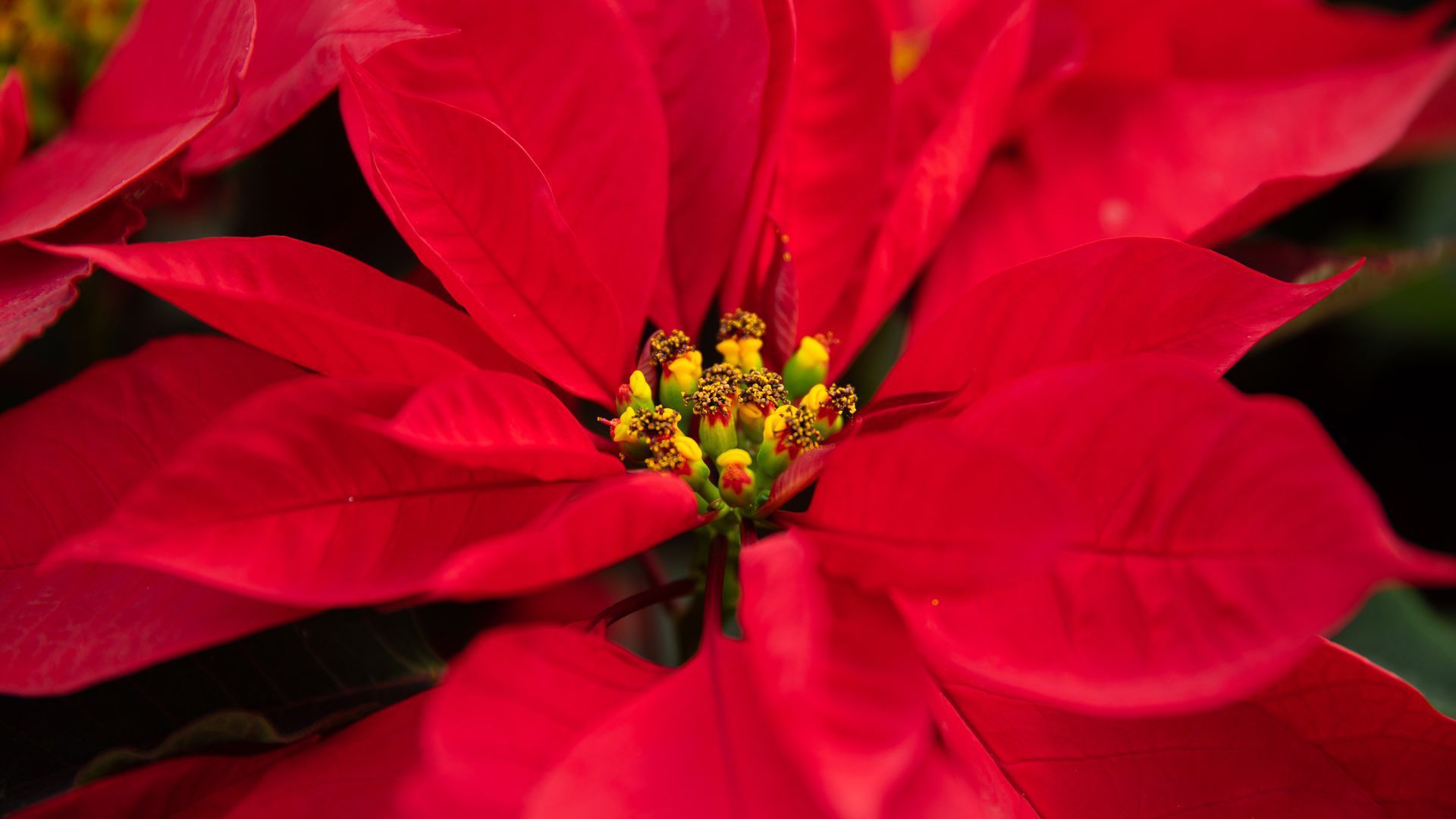 | | | Poinsettia plants in Mexico City. Photo: Daniel Cardenas/Anadolu Agency via Getty Images | | | | A curious U.S. ambassador and the American family who patented poinsettia varieties are behind the holiday ubiquity of a plant that originated in Mexico, Axios Latino's Marina E. Franco writes. The backstory: Aztecs in the 14th century called the plant cuetlaxóchitl, which roughly means "leathered flower" in Náhuatl. - They used it for warrior rituals and dyes, and the latex sap to treat wounds and help break a fever.
It wasn't until the first Spanish settlers arrived in Mexico in the 16th century that the plant was specifically linked to the Christmas season. - In 1825, Joel Roberts Poinsett — who counted botany among his hobbies — was appointed as the first U.S. ambassador to the country.
- Poinsett sent samples to friends, and one sample made its way to a Philadelphia Botanic Garden, which debuted the plant in the U.S. at an 1829 flower show. It then spread throughout the country and across Europe under the name poinsettia.
|     | | | | | | 7. Stories we're watching | 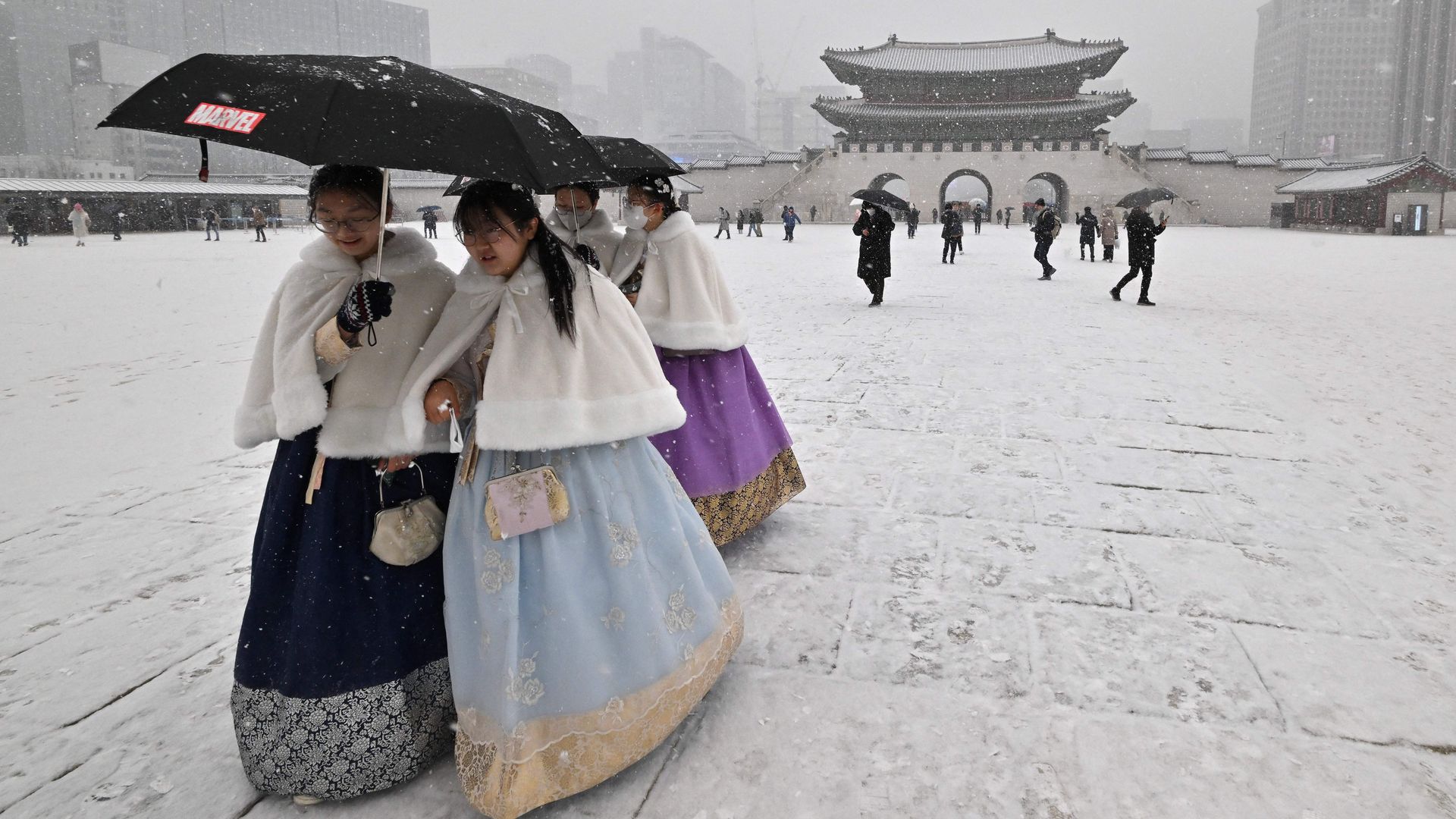 | | | Snow in Seoul. Photo: Jung Yeon-je/AFP via Getty Images | | | - China to stop reporting asymptomatic COVID cases
- Mexico developing AI to find its missing
- Beijing's media power in Southeast Asia grows
- UN votes to remove Iran from women's rights commission
- Biden braces for potentially 14,000 migrants a day
- U.S. Air Force veteran freed in Ukraine-Russia prisoner swap
- BTS member starts military duty
Quoted: "On Saturday, I was informed that my uncle was murdered by the Eritrean army." — WHO Chief Tedros Adhanom Ghebreyesus, whose family comes from Tigray, Ethiopia |     | | | | | | A message from Babbel | | Polish up your Polish — or 13 other languages | | |  | | | | Not only can you learn to say "dziękuję ci" ("thank you" in Polish!) with Babbel, but it also helps get your pronunciation right from the start. A language learning platform developed by 150 linguists, Babbel has lessons, exercises, videos and more. Speak a new language in as little as three weeks. | | | | Answers: 1. Kazakhstan; 2. Beijing; 3. South Korea; 4. Yemen; 5. Sri Lanka; 6. Afghanistan and Pakistan; 7. Japan; 8. Taiwan; 9. Burkina Faso; 10. Seoul; 11. Kherson; 12. U.S. Questions: - Jan.: The Moscow-led CSTO send in troops to restore order in ___.
- Feb.: The Winter Olympics are held in ___.
- March: Yoon Suk-yeol is elected president of __ by less than 1% of the vote.
- April: A truce is agreed to halt the civil war in ____.
- May: Protesters in ____ occupy the presidential palace (and swimming pool) during mass protests. The president resigns.
- June: An earthquake near the border of ___ and ___ kills more than 1,100 people.
- July: The former longest-serving prime minister of ____ is assassinated in a rare incident of gun violence.
- Aug.: China conducts its largest-ever naval exercises around ___ after accusing the U.S. of provocations .
- Sept.: The West African country of ____ has its second coup in one year.
- Oct.: More than 150 people are killed in a crush outside a Halloween party in the city of ____.
- Nov.: Ukrainian forces recapture ____, the only regional capital that has fallen to Russia since the invasion.
- Dec.: Scientists in ____ claim a major breakthrough in nuclear fusion.
|  | | Are you a fan of this email format? Your essential communications — to staff, clients and other stakeholders — can have the same style. Axios HQ, a powerful platform, will help you do it. | | | | | | Axios thanks our partners for supporting our newsletters. If you're interested in advertising, learn more here.
Sponsorship has no influence on editorial content. Axios, 3100 Clarendon Blvd, Arlington VA 22201 | | | You received this email because you signed up for newsletters from Axios.
Change your preferences or unsubscribe here. | | | Was this email forwarded to you?
Sign up now to get Axios in your inbox. | | | | Follow Axios on social media:    | | | | | |
No comments:
Post a Comment